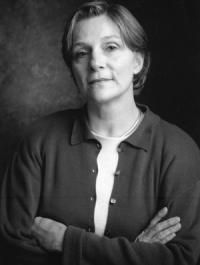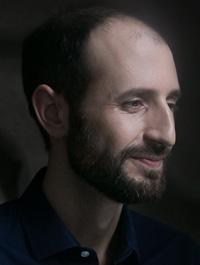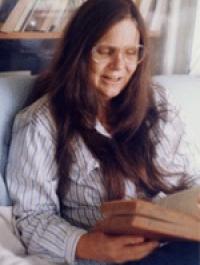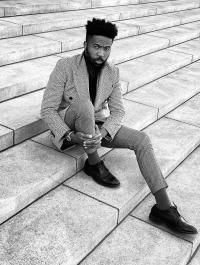On the way home, going,
with the hill & mammoth clouds
behind me, rushing to the house
before the rain, those beautiful Pakistani girls,
their faces happy as poppies, I thought, those girls
rushing home as I was rushing home
to beat the first small pieces
of rain falling down
like nickels in departing light. There
was the laughing of the beautiful girls,
shrieking gulls, five or six of them (depending
on whether I count myself), the bright
& shining planets of their dresses
lifting, just so, in the wind. & their black hairs.
& the black sound of horses, horses
hoofing it home, the click
& clop of their patent leather hooves—Still, it touches
my ear, this sound. I touch
my heart. I can’t stop touching
my heart & saying, Today is my birthday,
you see? For the beautiful clamor of planets
dressed as girls who, running home, have heads.
Whose heads swing black night, running home
on the black feet of horses, from the rain.
Now I understand. Today is my birthday.
It is Thursday, my day. My black day.





